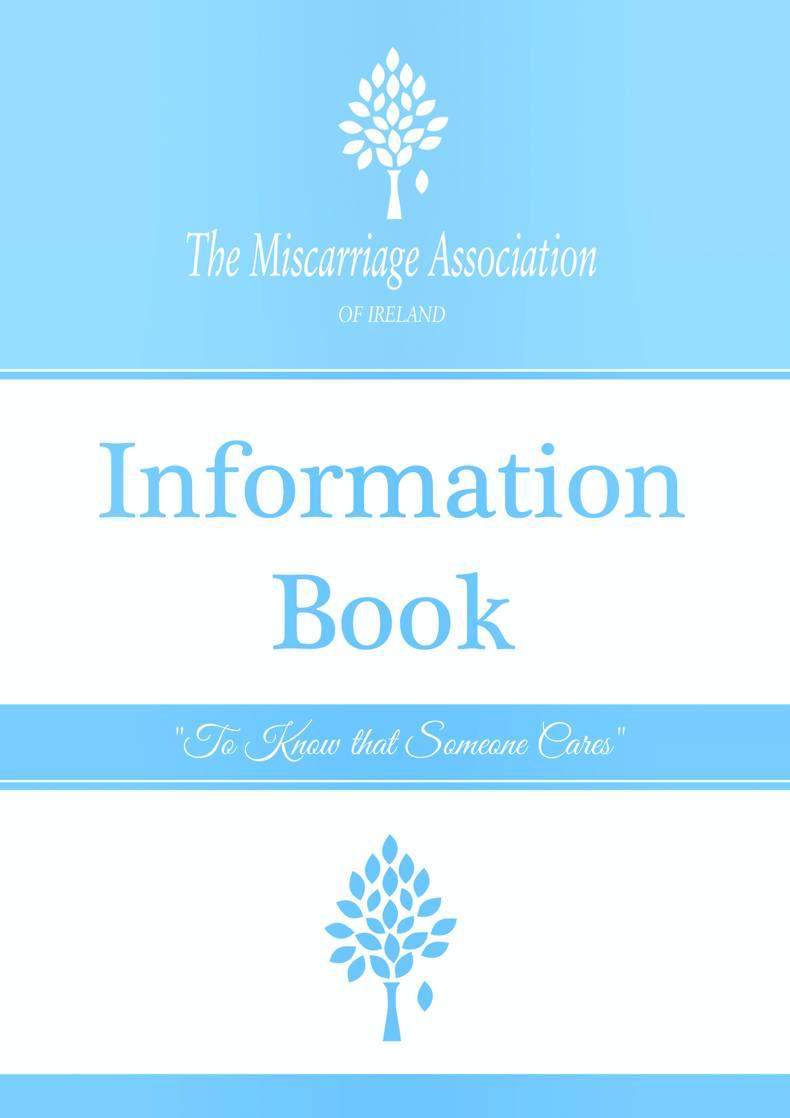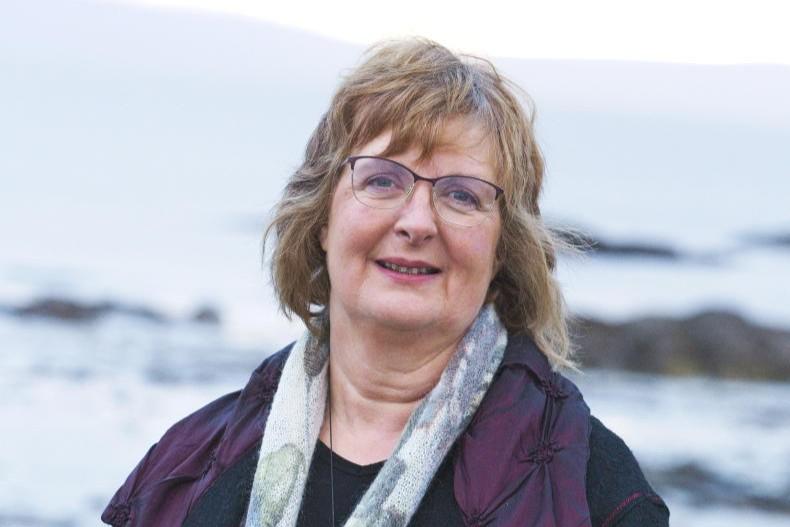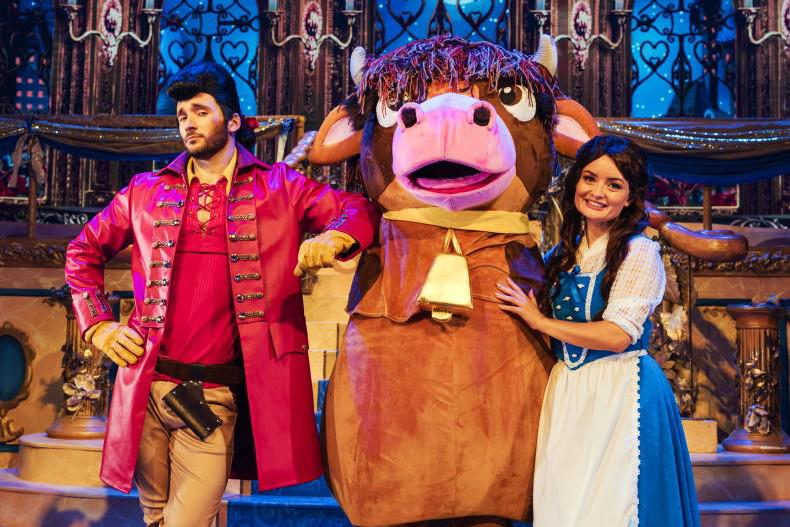Deirdre Pierce-McDonnell lives in Co Kildare and is chairperson of the Irish Miscarriage Association. She has had two miscarriages – one in 2009 and another in 2014. She named her babies Rory and Jules.
Miscarriage is a word she has trouble with, she says.
“It’s such a banal description of what happens. With stillbirth you have the word birth at least. Unfortunately, miscarriage is just as bad, except (that it happens) at an earlier stage.”
She has three sons, aged seven, four and two. She is thankful for having three healthy children but experiencing two miscarriages was still very traumatic for the couple.
“The first was at 22 weeks (gestation). It was my second pregnancy. It’s the shock that gets you,” she says.
“In my case there were no signs, although, looking back, I remember thinking that I wasn’t as big as I should have been at that stage of the pregnancy. We went for a scan and it was to be an exciting day but, instead, our world turned upside down. We heard those awful words: ‘There is no heartbeat.’ You go into shock really – numb. In fairness, the hospital staff gave us lots of time, taking us to what I call the tissue room and talking to us about the options.”
Deirdre decided to have another scan the following morning because all this happened at a time when Irish news bulletins were full of stories about misdiagnosis and scan machines in hospitals not working properly, but, unfortunately, the result was the same.
A D&C* wasn’t an option for Deirdre at that stage of pregnancy, she was told.
“When it’s that many weeks, you have to take a tablet.
“I gave myself a few days before I did it. It is a hard pill to swallow, literally. Even though you physically have to let go of the baby, you don’t want to let go. It was a baby boy. We called him Rory. That was 29 June 2009.”
An autopsy was performed but there was no clear explanation of what had happened to cause the miscarriage. “
A service of remembrance was also held for Rory at the hospital a few days later.
“We had the option of burying Rory in Glasnevin cemetery but we decided to bury him with his great-grandparents in a cemetery near home. It gives us a lot of comfort having a place to go to visit him. We do that, as a family, a couple of times a year.”
The couple had good support from the hospital – not every parent is so lucky, Deirdre says.
“Sometimes, through the Irish Miscarriage Association, we hear that parents experiencing miscarriage feel that their trauma isn’t fully acknowledged by staff in the hospital.”
Counselling was offered to her by the hospital, she adds.
“They were very good from an emotional point of view but, looking back, I think that me having a physical check-up afterwards – some kind of physical follow-up – would have been helpful, even a scan that would show if you are ovulating after a couple of cycles.
“I suppose I would like to have known that I was okay. Maybe that should be part of the after-care of someone who has had a miscarriage.”
Christmas 2009 was an emotional watershed for Deirdre.
“I was taking down the decorations and thinking of how it would have been Rory’s first Christmas,” she says.
“I cried for two days. After that, I slowly began to feel a bit better. In the initial few months I had just been trying to get by but it was really hard to do everyday things – shopping and organising the house and so on. You have to function and it was good to have our first child, Conor, to keep me going, but you’re not really there in the present. You’re in the past or the future – anywhere but the present.”
A private visit to a gynaecologist in January 2010 reassured Deirdre that everything was fine if she wanted to have another child.
“I became pregnant again soon after that and everything went well,” she says. “I coped during the pregnancy (of my son Harry) by keeping busy and trying not to think about it until the 24- or 25-week mark was over when I knew that everything was definitely okay this time. Harry was born on 12 October 2010.
“We have also had another little boy since – Sam, who is two now, and, thankfully, that pregnancy went fine as well.”
Recording the baby's life
Deirdre first got in touch with the support association after her first miscarriage.
“After Rory died, we went to the remembrance service that they organise every year. It was good to write his name and details in the book of remembrance because you can’t register a baby anywhere unless they’ve reached 24 weeks (gestation).
“I met women at those services who had babies years ago and are only recognising them now. Back then, you wouldn’t even see the baby.
“I remember getting cards afterwards from people we knew, women saying how they’d had miscarriages themselves but nobody ever knew about it. I found that very sad. It’s better to be more open about it, I think, though it’s obviously not for everybody.”
Second miscarriage
Deirdre had a second miscarriage in July 2014.
“I know I’m really lucky to have three lovely boys,” she says, “and I keep holding onto that, but it has taken me longer to get over losing Jules. We don’t know if the baby was a boy or girl. We chose the name Jules because it was July. I had an early scan at eight weeks and everything looked good, but at the 12-week scan the baby had stopped growing.”
Physically, it has been much harder for Deirdre to recover this time, she states.
“I had severe contractions and lost a lot of blood. Miscarriages can vary in terms of pain and blood loss. I passed the little sac and we buried it in the garden under an apple tree. I thought I’d finished with all the pain after one day but I had to be admitted to hospital the following day as the pain started again. I was given pethidine and kept overnight and had a D&C the next morning.”
Jules’ due date would have been 12 February 2015, so it’s been a difficult time for Deirdre and her family.
“The sadness seems to come from out of the blue sometimes, but it’s better to express it, though I find it more difficult to talk about miscarriage since the second one happened.”
Deirdre is chairperson of the Irish Miscarriage Association and it helps her to help others, she says.
“That’s because I know what they are going through. Our logo is a family tree with a leaf falling from it. I think it sums up the idea of a little life born too soon.”
The Irish Miscarriage Association offers telephone and email support for anyone who needs it.
“We also have a Facebook page, a service of remembrance and books of remembrance. The Irish Miscarriage Association is a charity and we get a grant from Tusla, the family support agency, to provide information to parents via hospitals and our website. We also fundraise and hold regional meetings that people can come to. We also have 11 memorial stones placed in cemeteries across the country.”
Empathy & compassion
Getting all hospitals to treat those experiencing miscarriage well is a goal for the association.
“We ask for open communication, empathy and compassion on the part of hospital staff for those experiencing miscarriage. It is very important. What is being experienced is the shattering of dreams. To every individual it is a life-changing experience and very traumatic. Everyone’s response is different but it can be very frightening, particularly if it’s a first baby.”
The association is now working with hospitals to put together a leaflet about threatened miscarriage and what to expect.
“You need to prepare somebody for what inevitably will happen. Preparation – that’s what we push for all the time.”
*D&C is a surgical procedure often performed after miscarriage and means dilation and curettage.
Support & remembrance
A monthly support meeting takes places on the first Thursday of each month in Buswells Hotel, Dublin, from 8pm to 9.30pm. The annual service of remembrance is held on the second Sunday in November in St Theresa’s Church, Donore Avenue, South Circular Road, Dublin.









SHARING OPTIONS